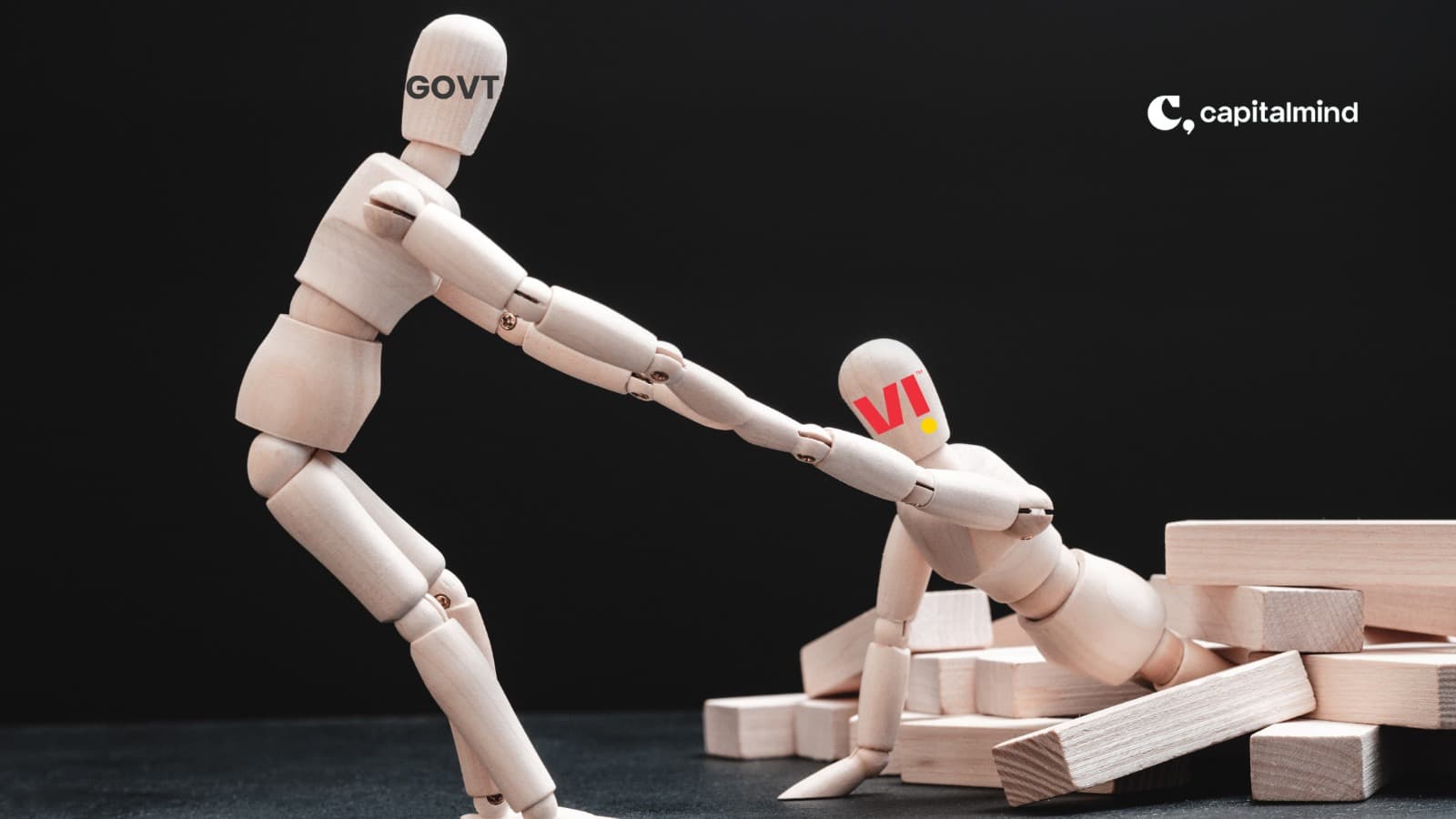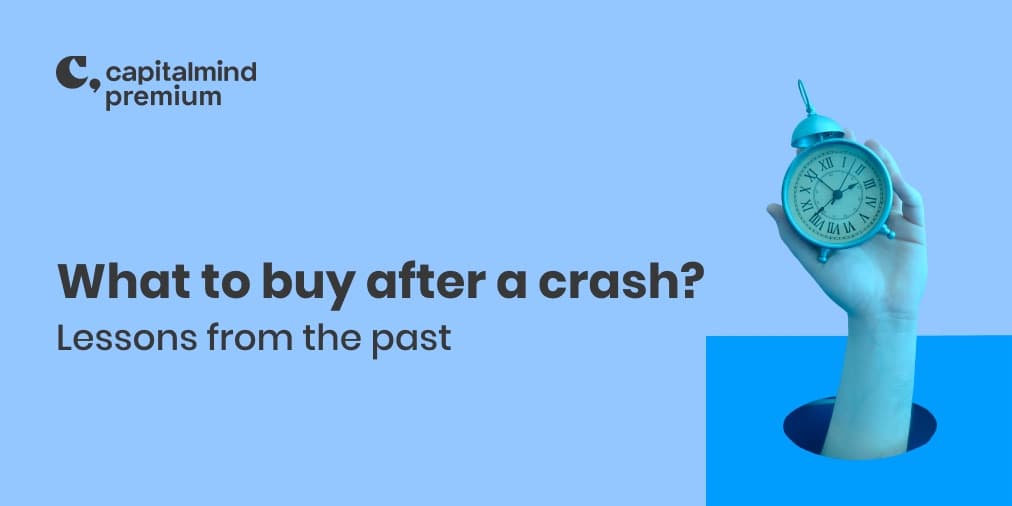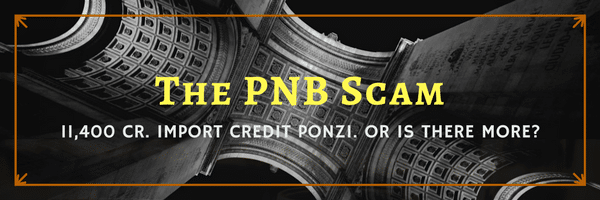(category)Opinion
Vodafone Idea gets a Duct-Tape-Fix by converting government debt to equityVodafone Idea gets a Duct-Tape-Fix by converting government debt to equity
The Indian government is converting ₹37,000 crores of Vodafone Idea’s (VI) debt into equity at ₹10 per share, despite the stock trading lower. This move, driven by regulatory constraints, offers only temporary relief as VI remains financially distressed with ₹165,000 crores in losses and a negative net worth. With massive upcoming payments and a struggling business model, VI’s survival is uncertain. A structured bankruptcy may be the best solution, ensuring market competition while avoiding prolonged financial struggles. Meanwhile, Airtel and Jio stand to gain from VI’s woes.
Deepak Shenoy•

There are so many questions. Why would the government buy at ₹10 when the stock was trading at ₹ 6.8? Under SEBI laws you have to take the weighted average of prices traded recently, but even that works out at less than ₹10. But a section in the Companies Act says you can’t issue shares at less than “par” value, which in this case is ₹10, so that’s the minimum.
There’s no cash changing hands. VI owes the government ₹210,000 crores and will convert a part of it into equity. This conversion will only address a small part of it, the part that is coming due in the second half of this year. Why would the government do this and not get paid? Largely because it cannot. There isn’t enough money with VI to pay it, and they are unlikely to be able to convince investors and raise money just to pay the government.
Vodafone Idea was born from a merger of two very large telecom players, and has primarily been owned by the UK giant Vodafone and Kumara Mangalam Birla’s business group. From the largest subscriber base in the country when they merged, VI has fallen to a distant third in the rankings with only 18% market share. One of the major pain points for it was the Supreme Court ruling in 2019 which fixed the demand for sharing Adjusted Gross Revenue (AGR) at what is now ₹70,000 crores.
In response, Vodafone UK wrote down their investment in VI to zero, and has refused to participate in any equity in the company since then. With falling market share, a much higher debt burden with the Supreme Court ruling, and with lots of investments needed for 5G, Vodafone Idea’s share price has fallen to single digits and has accumulated ₹165,000 cr. of losses. The company has a negative net worth now, which means it’s technically insolvent, to the extent of nearly ₹100,000 crores in the red.
And then, there’s the money to be paid for spectrum and AGR. What the government has converted today is just the payment for FY 2025-26. From the next year, VI has to pay more than 40,000 crores every year for four more years. Can the government convert that also to equity? After this conversion, the government will own about 49% of the company. If it had to convert more, it would be a majority shareholder, VI would become a PSU and all the corresponding implications - from RTI, to CAG oversight, to limits on salaries, are likely to come into play. It is also against the core philosophy of the government not taking a role in business - especially when it already owns BSNL, the smallest but oldest telecom company.
The government had, in 2024, converted around ₹16,000 cr. - the interest on past AGR dues - into equity (at ₹10 a share again). After that, the company raised ₹20,000 cr. through a follow-on public offering, with the Birla group putting in about ₹2,000 cr. This money just goes to pay vendors and for other payments - it is not enough to pay for upcoming government payments.
Vodafone Idea is the third player in what is a four player field now - Reliance Jio and Bharti Airtel have nearly 75% market share, and the state-owned BSNL is the smallest. It makes sense to have it survive, but the problem is greater than just government dues. VI has not even made operating profits that would cover its depreciation, leave alone interest, since 2020. Simply put, it would still make losses even if the entire debt was converted to equity. The problem is beyond the debt burden.
What it appears right now, is that the company has massive impending debt repayments, a dwindling customer base, cash flow that isn’t enough to meet investments needed to replace equipment, and one of the promoters refusing to participate any further. What may make sense is to run the company through a planned bankruptcy resolution, which will legally wipe
off all the debt and allow a new promoter to make the company strong again. This addresses the Supreme Court’s fears of the government giving up its share without reason.
Bankruptcy based resolution means there is still a third player, but it will become relatively healthier. Shareholders might have to be written down as they have in other bankruptcies, so that it’s more fair for a new player to own most of the company. To a new entrant, there is an opportunity to bid for a telco that is running, and can be improved. The government might have to give up on most of the interest to be received, but will receive compensation in a resolution amount that is far more likely to be paid than what it is right now.
But at the moment, the news is about the government conversion of debt to equity. The stock market usually gets overenthusiastic about such an announcement, because it’s a band aid that hides away the actual wound. But since it doesn’t actually fix it, the equity conversion is the financial equivalent of temporary duct tape. In fact, it would make sense for the government to use every opportunity it can to sell shares in the open market, spread over the next year or so, just for recovery.
Vodafone’s woes are positive for the two larger players, Airtel and Jio. A quick and planned resolution would drive up competition, provide a more reasonable recovery for the government and allow for more innovation in one of the largest mobile network markets in the world. Without one, the company just trudges along, and we are likely to see another round of worries for the company.
Related Posts
Make your money work as hard as you do.
Talk to a Capitalmind Client AdvisorInvesting is not one size fits all
Learn more about our distinct investment strategies and how they fit into your portfolio.
Learn more about our portfoliosUnlock your wealth potential
Start your journey today



